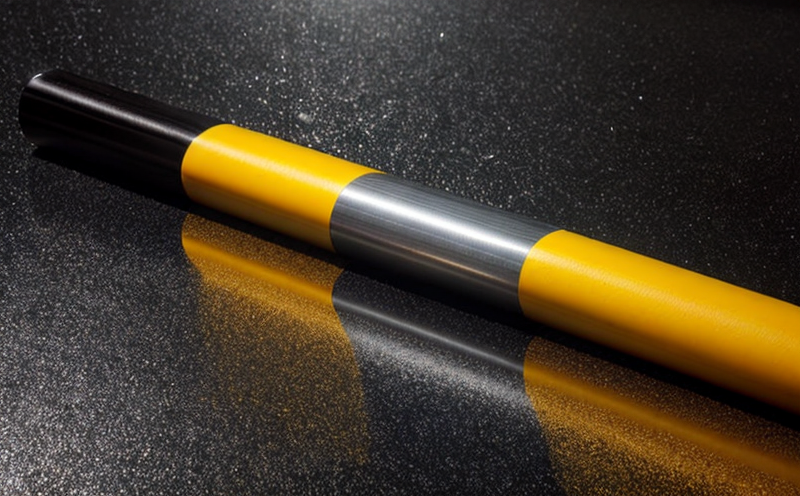Evaluating the behavior of composite materials under thermal cycling conditions
Evaluating the Behavior of Composite Materials under Thermal Cycling Conditions A Crucial Laboratory Service for Businesses
In todays fast-paced world of manufacturing and innovation, composite materials have become an integral part of various industries, including aerospace, automotive, energy, and construction. These materials are renowned for their exceptional strength-to-weight ratio, durability, and resistance to fatigue. However, when exposed to thermal cycling conditions repeated heating and cooling cycles their behavior can become unpredictable, leading to potential failures and costly repercussions.
At Eurolab, we understand the significance of evaluating the behavior of composite materials under thermal cycling conditions. Our laboratory service is specifically designed to help businesses like yours assess the reliability and performance of these critical components under simulated real-world conditions. In this article, well delve into the importance of this evaluation process, its benefits, and answer frequently asked questions.
Why Evaluate Composite Materials under Thermal Cycling Conditions?
Composite materials are used in a wide range of applications where extreme temperatures are encountered, such as aircraft engines, automotive exhaust systems, and wind turbine blades. When subjected to thermal cycling conditions, these materials can undergo significant changes in their mechanical properties, leading to
Reduced performance Decreased stiffness, strength, and fatigue life can compromise the overall functionality and safety of the component.
Increased risk of failure Unpredictable behavior can lead to premature failures, resulting in costly repairs, downtime, and potential liability issues.
Design and material selection challenges Understanding how composite materials respond to thermal cycling conditions is crucial for optimizing design and material selection.
Advantages of Evaluating Composite Materials under Thermal Cycling Conditions
Our laboratory service at Eurolab offers numerous benefits to businesses that prioritize the reliability and performance of their composite components. Some key advantages include
Improved product reliability By understanding how your materials behave under thermal cycling conditions, you can optimize design, reduce the risk of failure, and ensure product safety.
Enhanced decision-making Our evaluation services provide valuable insights for informed material selection, design optimization, and quality control processes.
Compliance with industry standards Meet regulatory requirements and industry-specific standards by demonstrating the reliability and performance of your composite components under thermal cycling conditions.
Key Benefits
Accurate prediction of component behavior Our laboratory evaluates the mechanical properties of composite materials at various temperatures, providing a comprehensive understanding of their behavior.
Design optimization We help you optimize design parameters to mitigate potential failures and ensure optimal performance in real-world applications.
Material selection guidance Our expertise helps you choose the most suitable materials for your specific application, considering factors such as temperature, loading, and environmental conditions.
QA Evaluating Composite Materials under Thermal Cycling Conditions
Q What is thermal cycling?
A Thermal cycling refers to repeated heating and cooling cycles that can cause material degradation or changes in mechanical properties.
Q Why do I need to evaluate composite materials under thermal cycling conditions?
A Evaluating the behavior of composite materials under thermal cycling conditions helps you understand their reliability, performance, and potential failure modes, ensuring optimal design, material selection, and product safety.
Q How does Eurolabs laboratory service work?
A Our team uses state-of-the-art equipment to simulate real-world thermal cycling conditions, assessing the mechanical properties of your composite materials under various temperature cycles.
Q What types of industries can benefit from this evaluation service?
A Any industry that utilizes composite materials in applications where extreme temperatures are encountered, such as aerospace, automotive, energy, and construction.
Conclusion
Evaluating the behavior of composite materials under thermal cycling conditions is a critical aspect of ensuring product reliability, performance, and safety. At Eurolab, our laboratory service provides valuable insights for informed material selection, design optimization, and quality control processes. By partnering with us, you can
Improve product reliability and reduce the risk of failure
Enhance decision-making through accurate prediction of component behavior
Meet industry standards and regulatory requirements
Dont compromise on the performance and safety of your composite components. Contact Eurolab today to learn more about our laboratory services and how we can help you navigate the complexities of thermal cycling conditions.
Related Services
Mechanical Testing Comprehensive mechanical property evaluation, including tensile, compressive, flexural, and impact testing.
Environmental Testing Assessing material behavior under various environmental conditions, such as temperature, humidity, and chemical exposure.
Materials Characterization Advanced characterization techniques for understanding material properties and optimizing design.
Let Eurolab guide you through the evaluation process. Our experts are committed to helping you make informed decisions about your composite materials, ensuring optimal performance and reliability in even the most demanding applications.




